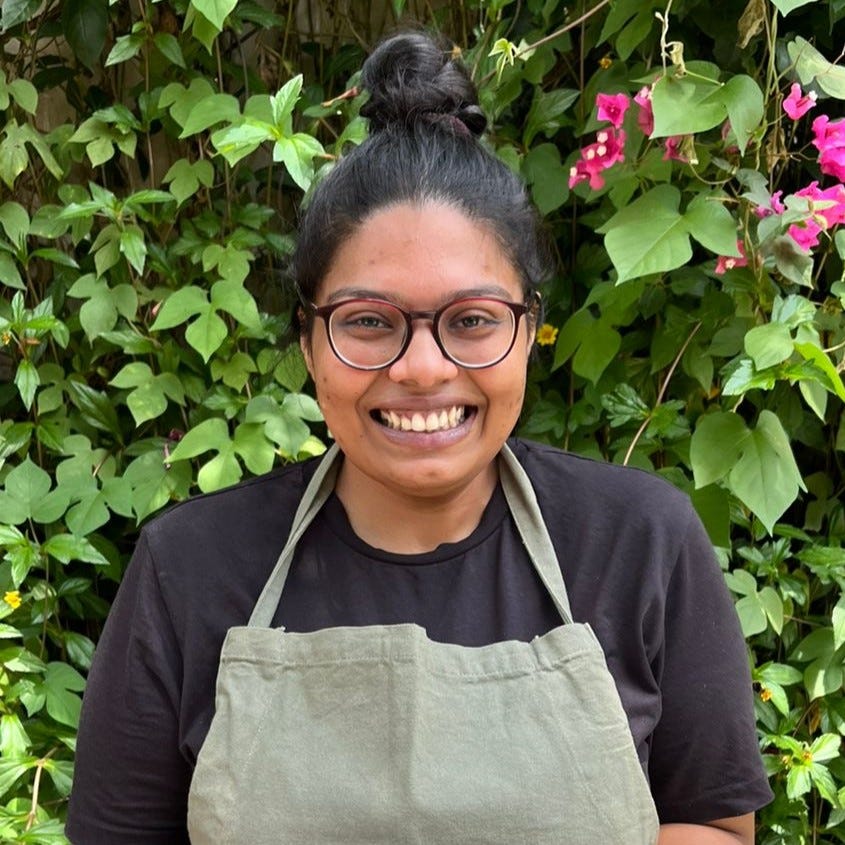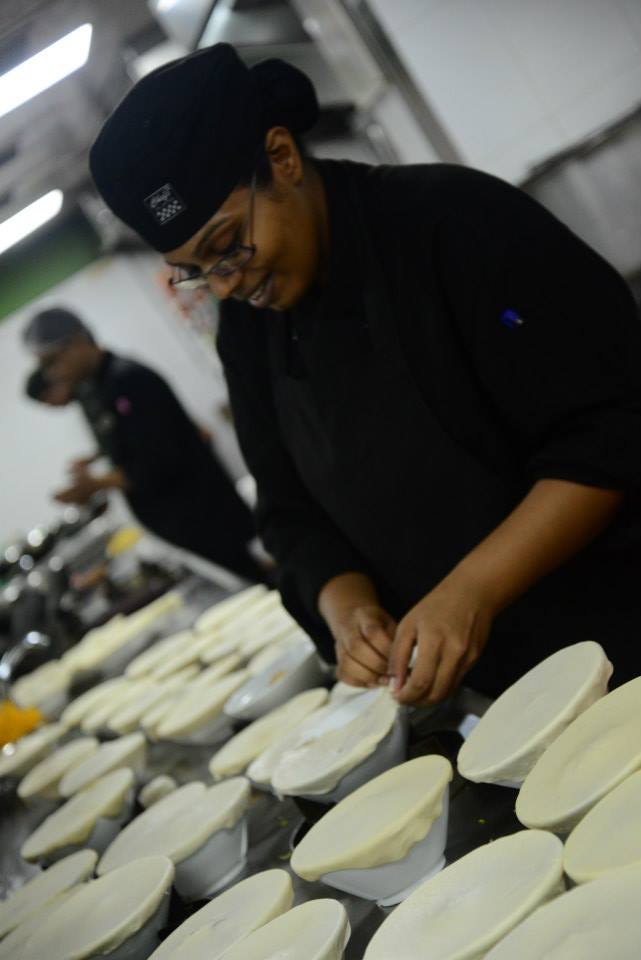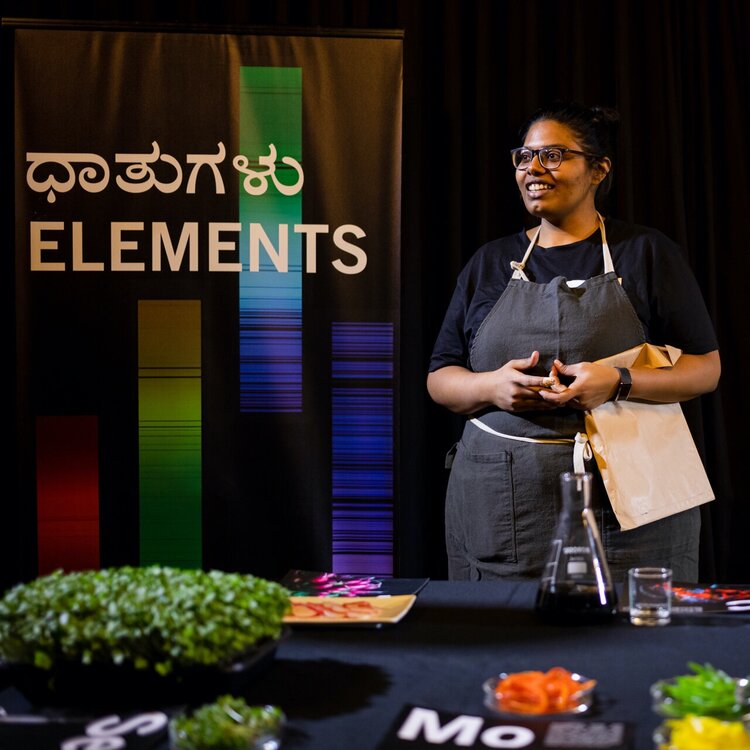(May 18, 2024) Her city Bengaluru is home to 72 breweries, and chef-turned-food researcher Elizabeth Yorke couldn’t help but think how the micro-breweries were using the spent grain. A concept she came across while interning with food historian William Rubel in California in 2018, who was recreating bread from the 16th century. She learnt that spent grain, a by-product of brewing, has the potential to be repurposed into flour, which otherwise makes its way to landfills. This led her to start Saving Grains in 2022, to upcycle spent grains from breweries into products like cookies, flour, granola, biscuits, and ladoos.
“An average microbrewery in the city uses nearly 200 kg of grain/day that’s about 12000 kg of grain is potentially wasted every day within the city,” according to Elizabeth. “We’re rescuing these grains to make a ‘Good Flour.’ Why good? Because we’re creating a model that derives value from waste by capturing food waste streams in cities – built for communities, through a human-centered approach.”

Elizabeth Yorke is the founder of Saving Grains
How a chef turned into a food researcher
Growing up in a family where food played an integral part as it brought people together, Elizabeth consciously gravitated towards culinary arts and pursued the course at the Manipal Academy of Higher Education. The route took her to multiple restaurants and hotels across the US and Mexico where she worked as a chef for almost six years before exploring food outside the kitchen space. “I have always been drawn to cooking naturally. A kitchen always brings family and friends together; an interesting space to be around. A kitchen is a place that can build perspectives on food and the supply chain,” she said in an interview, adding, “Being around food has always prompted me to think of what happens to food before and after it is served on the plate. That curiosity and learning have shaped what my worth is as a cook.”
The curiosity to learn more took her to California in 2016 for an internship with food historian William Rubel, who was recreating bread from the 16th century. While learning the history of bread, she discovered the concept of spent grain – a byproduct in the beer brewing process and also the relationship between the bakers and brewers. Throwing light on it, she said that brewers and bakers used to work in similar spaces. “They would share common ingredients, its byproducts, and work in a closed-loop circular system. For instance, bakers gave brewers their leftover bread to convert into beer, and brewers gave bakers leftover grain to make bread. Back then, bakers would bulk up grain because flour was an expensive commodity,” said the Global Indian.

Armed with this knowledge, she moved to Bologna in Italy in 2018 to work as a food innovation research fellow at Future Food Institute, where he focus was on understanding circular and sustainable food systems. This gave her an insight into ways of minimising food wastage as well as the lifecycle of food.
Circular food economy
Inspired, she returned to Bengaluru to start Saving Grains in 2021 as an attempt to upcycle the brewery grain. Explaining the process on the Saving Grains website, she wrote, “Brewing relies on grains, typically malted barley, which are first soaked in hot water. This step releases sugars that are crucial to the later production of alcohol. Once those sugars are released into the liquid, the grain is discarded. That discarded grain is called spent gain.”
The spent grain is collected by Saving Grains from local breweries and then taken to the facility where it’s dried and processed into products such as ladoos, biscuits, granola. cookies and flour, which has 22% protein, 45% fibre and 20% carb.

Spreading awareness to create impact
However, convincing people to consume by-products of a waste product has been a challenge for Elizabeth. “Repurposing spent grain is an extra effort for most stakeholders. Also, it has nothing to do with the beer production. This mindset needs to be changed, and a sense of ownership of material needs to come into place,” she added. Elizabeth, who upcycled 1200kg of spent grain, also found coming up with new recipes with the ingredients to be an obstacle. But she kept researching and experimenting and developing and has also written a handbook on how to make new recipes from spent grain.
Apart from partnering with breweries, she has collaborated with Kutumba Community Centre in Bengaluru to engage the community in a circular food economy. “The people at the community centre can freely use the flour to make rotis. This collaboration has been done to put people and the community at the heart of the circular food economy,” she added. Being a food researcher and educator, she started the Serial Upcyclers Club which educates people about spent grain and the concept of recycling. She wants to create awareness among people and communities about spent grain. “There’s a saying, ‘Waste is what is left when our imaginations fail’. It is time that we try to understand the potential of food as a resource and the strategies we can employ to reduce food waste,” she added.
- Follow Elizabeth Yorke on LinkedIn
Also Read: Utsav Kedia: Steering a 50-year spirits legacy toward a greener future



